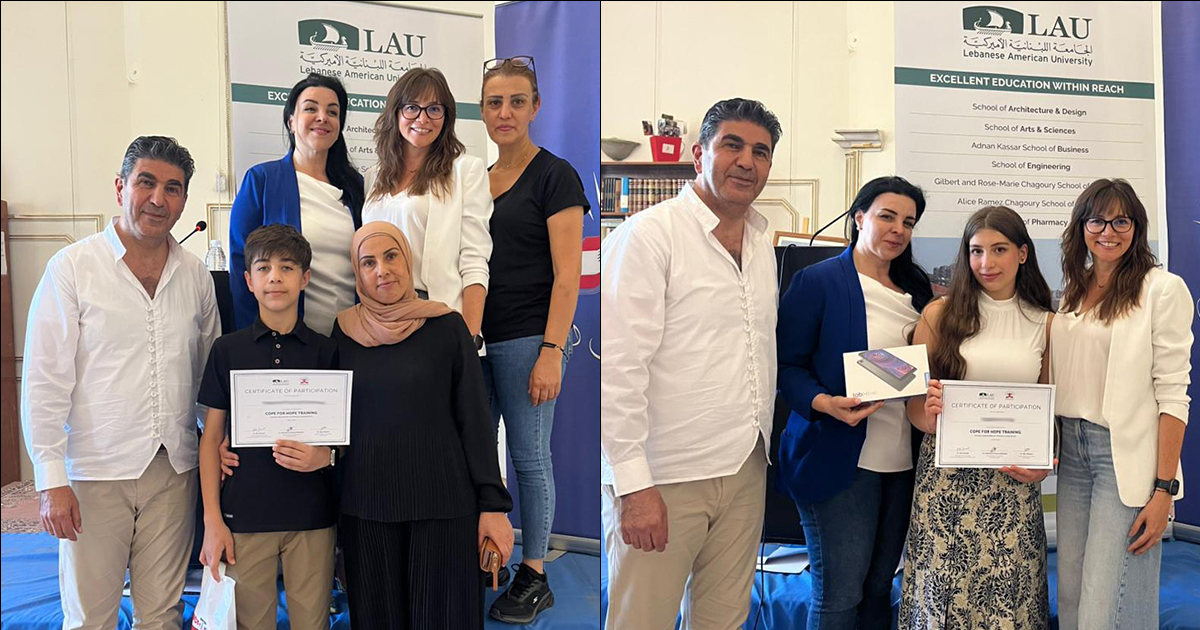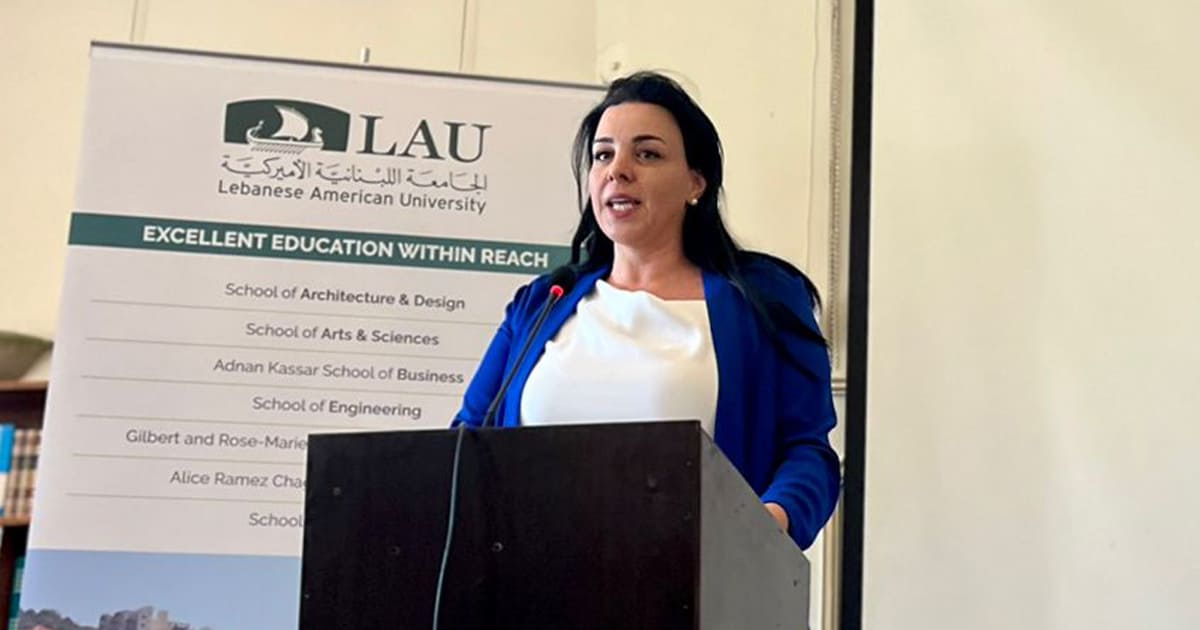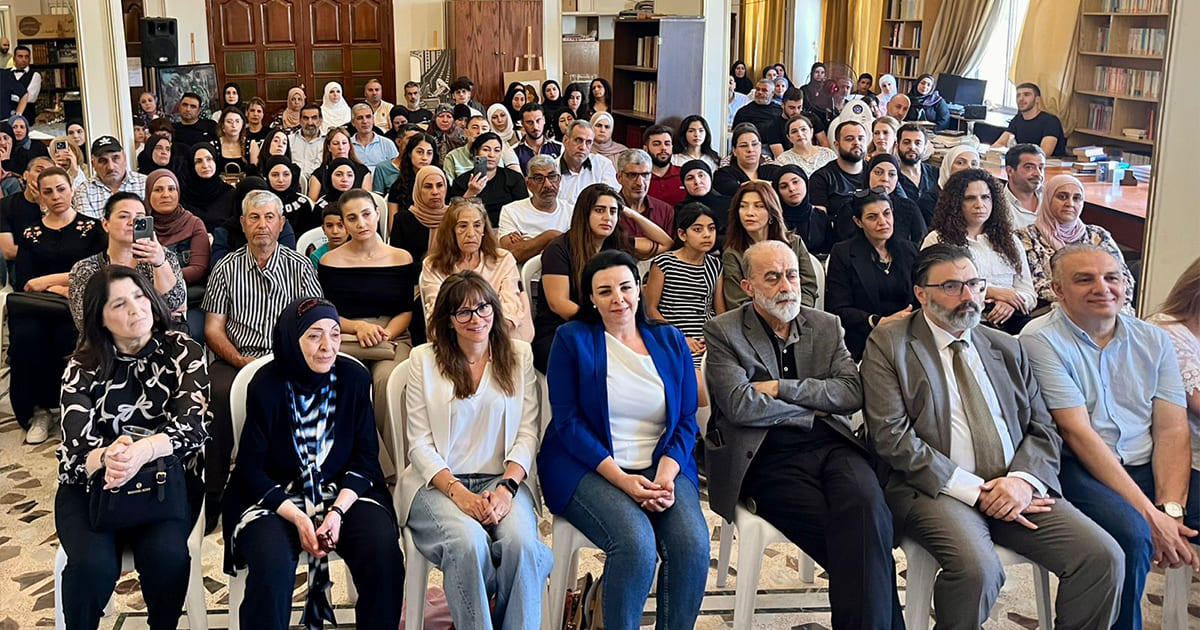LAU Brings Mental Health Support to Vulnerable Adolescents
In Lebanon’s Baalbek, LAU’s youth-focused wellbeing program is already making a difference.
Lebanon’s youth have grown up in the shadow of crises, from an economic collapse and political instability to a devastating war in 2024. For many adolescents, these traumas have taken a toll on their mental wellbeing and often reshaped how they navigate daily life.
Rising against such adversities, LAU faculty have spearheaded a community-based intervention titled COPE for HOPE—an initiative funded by the LAU President’s Intramural Research Fund (PIRF)—designed to empower marginalized groups in Lebanon’s vulnerable areas by addressing quality of life, mental health and nutrition.
Drawing on global research initially conducted by CEO and Founder of COPE2Thrive LLC Bernadette Melnyk, the program adapts a standardized and simple model known as COPE (Creating Opportunities for Personal Empowerment). This program uses cognitive behavioral therapy-based skill-building to reduce negative thoughts, increase healthy behaviors, and improve communication and problem-solving. It is proven to reduce symptoms of psychological distress while enhancing self-esteem and adaptive coping mechanisms.
The intervention was launched at the Baalback Cultural Council (BCC), targeting Lebanese teens between the ages of 14 and 17. Over seven sessions, the participants learned to better manage stress, reframe unhelpful thoughts, develop emotional resilience, and adopt healthier lifestyle choices.
The sessions were led by local psychologists from the region, supported and trained by Associate Professor at LAU’s Alice Ramez Chagoury School of Nursing Rita Doumit, and associate professors at the School of Arts and Sciences (SoAS) Myriam El Khoury-Malhame and Nadine Zeeni, who ensured that the intervention was delivered with the utmost care and grounded in the region’s culture.
The program’s adaptability to culturally diverse settings was previously validated in a pilot study in 2017 in Beirut. This was the first time it was implemented among Lebanese youth in a rural area after a series of unprecedented challenges, with a dual focus on psychological and nutritional education to address the interconnected relationship between mental and physical health.
“This is especially important in a country where body image is a crucial concern for adolescents across both genders,” noted Dr. Zeeni, who has strong research interests in eating behaviors.
Through interactive discussions and relatable examples from the participants’ daily lives, the program involved empowering students and building their stress management arsenal.
The activities involved guided role-play scenarios to practice positive self-talk and relaxation techniques, group problem-solving activities to address real-life challenges, including bullying and conflict-resolution with parents and peers, and structured goal-setting exercises to track progress. Between sessions, the adolescents completed homework assignments as a way to reinforce learned skills, with reminders provided via text messages to encourage consistent practice.
“It’s highly important that we capitalize on character strengths and resilience of this age-group to teach them healthy habits, such as cognitive restructuring, breathing, healthy eating and sleeping, to increase their emotional intelligence and model how to better deal with challenges,” noted Dr. El Khoury-Malhame, the study PI, whose research focuses on risk factors for trauma-induced mental distress versus post-traumatic growth.
Although the socio-economic and individual burden on the Lebanese population is immense, “institutionalized programs tackling mental health and wellness are scarce,” she added.
Preliminary findings from the study suggest promising outcomes, including reductions in symptoms of depression and anxiety and improved self-esteem. Participants have also reflected on improvements in their sleep patterns, stress and panic attacks, reporting that the program helped them build a sense of community and strong social relationships along the way.
“We are proud of our new mental health ambassadors, and we are now counting on them to challenge the defeatist narratives by centering on resilience and resistance,” said Dr. Doumit in her speech at the closing ceremony on June 29, 2025.
During the ceremony, a total of 86 participants were celebrated and awarded certificates as a token of appreciation for their dedication and participation. It was attended by proud parents, BCC’s principal, and the presidents of Baalbek Municipality and the Union of Municipalities of Baalbek.
The team now aims to use the COPE findings to seek extramural grants and upscale the study nationally with a vision to systematically embed this intervention in the Lebanese school curriculum.


